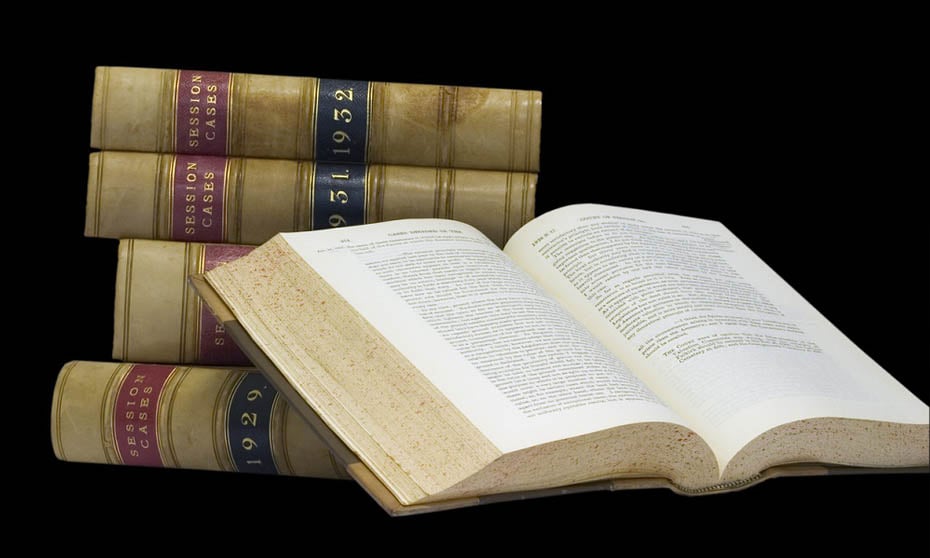A recent Ontario Superior Court decision shows that If a lawyer fails to disclose, the client faces the consequences, says Daniel Waldman

There is no such thing as trial by ambush. There are no hidden, smoking guns or last-minute reveals. Both sides must show their whole hand and disclose all relevant evidence, whether it is helpful or harmful to their cases.
A recent Superior Court decision has confirmed that our disclosure obligations are not just evidentiary. In Blake v. Blake, 2019 ONSC 4062 Justice Peter Daley held that lawyers are obligated to make the court aware of all legally relevant authorities, even if it undermines their client’s case. This rule holds true regardless of whether opposing counsel cites the authority or not. If a lawyer fails to meet this obligation, their client may face the consequences.
Blake was an estates matter, wherein an estate trustee brought a summary judgment motion to dismiss an application brought by his siblings. The motion was heard by Daley in September of 2018 and was reserved until March, 2019, when it was dismissed.
In his reasons, Daley cited the decision of Wall v. Shaw and he noted that it was “both unfortunate and troubling” that neither counsel brought this decision to his attention, as it completely sunk the moving party’s motion. Wall was decided by the Ontario Superior Court in March of 2018, six months before Blake was heard and it was upheld by the Court of Appeal in November of that year, while Blake was under reserve.
In his costs endorsement, Daley cited “serious concerns” with the moving party’s lawyer, both in terms of his duties as an officer of the court and his candour with opposing counsel. The concern stemmed from the fact that Wall was not brought to the court’s attention during oral submissions or while the decision was under reserve.
Daley stated that after the motion was argued he easily discovered Wall on his own while reviewing the applicable law. During his review, he also came across a blog post on Wall dated November 16, 2018. The post was written by a lawyer at the same firm as the lawyer for the moving party. Given that the firm is a small, specialized estates-litigation practice, Daley had “easily drawn the factual inference” that Wall was known by the lawyer when the post was published. He also came to the “very troubling conclusion” that the lawyer intentionally did not bring Wall to his attention.
Daley held that the lawyer’s actions amounted to a breach of the Rules of Professional Conduct. Specifically, counsel has a positive duty to fully disclose all binding authorities that are relevant to a case, even if they are adverse and are not cited by opposing counsel. In such situations, lawyers must raise relevant cases and distinguish them. By failing to bring Wall to Daley’s attention, the lawyer was deemed to have breached his duty to the court.
As a consequence, substantial indemnity costs were awarded against his client. Interestingly, Daley made this order even though opposing counsel did not allege lawyer misconduct in his costs submissions.
Blake was thorough and well-reasoned, but it still raises questions about a lawyer’s disclosure obligations.
First, how can it be proven that a lawyer knew about a case and intentionally hid it from the court? In Blake, Daley’s inference was fair; the lawyer was a name partner at a small, specialized firm and the blog post was written by another name partner at the same firm. It was therefore reasonable to infer that he knew about the decision.
But what would happen in other circumstances? In Daley’s reasons, he stated that if a lawyer practices in a specialized area and the case is easy to find, the court may deem that the lawyer ought to have known about the decision and will therefore be under a duty to raise it. This finding creates some concern. Despite our best efforts, we all miss a case sometimes. After all, in Blake, opposing counsel has been practising for over 35 years and is experienced in estate litigation and he didn’t cite Wall either.
The next question is about how deep a lawyer’s obligation runs when it comes to disclosing adverse law. Again, Daley’s reasoning was fair in this regard; Wall completely tanked the motion, so perhaps the lawyer should have raised it in order to distinguish it.
But what if Wall carried less weight? Would the obligation be the same? Daley stated that cases that are “not binding but are persuasive need not necessarily be provided to the court, however counsel should nonetheless raise a case if it is on point and from the same jurisdiction.”
This reasoning makes sense, but it is difficult to delineate the meaning of a case being “on point” in different circumstances. What if the case is important but is not necessarily a deal-breaker? Would a lawyer be safe keeping the case out of his or her factum, or should they err on the side of caution and cite the case, even though it would hurt their client’s position? Those judgment calls are not always easy to make.
Lastly, perhaps the most concerning aspect of Blake was that Daley held that the lawyer should have brought Wall to his attention while his decision was reserved. Does this mean that we have to keep a close eye on the law while we are waiting for a decision to come out and send adverse cases to the judge? Waiting for a reserved decision is difficult enough, but adding that extra obligation may cause us to lose even more sleep.
Blake is currently being appealed. It will be interesting to see whether the Court of Appeal addresses the questions raised by Daley’s decision. If Daley’s reasoning is upheld, it may create difficult situations for us in balancing our duties to our clients and the court. If a case hurts our clients’ argument and we opt not to disclose it, we may be doing a good service to our clients. However, if we are deemed to have misled the court by failing to raise the decision, our clients may pay the price, both figuratively and literally.











